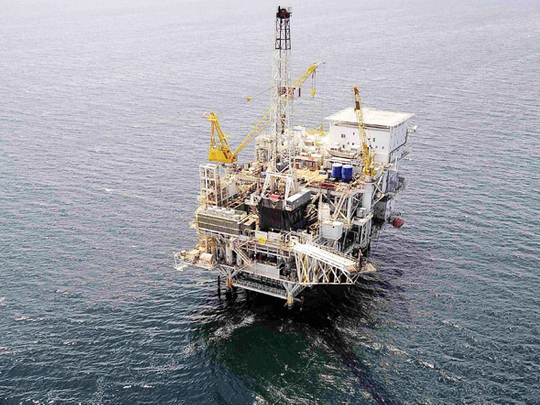
Abu Dhabi: The UAE and Saudi Arabia, together with 98 per cent compliance to the output curbs previously announced by the Organisation of Petroleum Exporting Countries (Opec), have the highest compliance level among Opec members, while Angola and Nigeria aren't complying at all with the curb on quotas, the latest data from the International Energy Agency (IEA) show.
According to the data, 11 Opec members having quotas (Iraq doesn't have an output quota), on average, pumped 26.70 million barrels of oil per day (bpd) in February, less than their sustainable output capacity of 32.95 million bpd. The average compliance by Opec members to the output curbs stood at 56 per cent last month, the data revealed.
Others
In February, Kuwait had 86 per cent compliance to the curbs imposed by Opec on its quota, Libya 67 per cent, Algeria 60 per cent, Ecuador 42 per cent, Venezuela 38 per cent, Qatar 33 per cent, Iran 12 per cent, while Nigeria and Angola had zero per cent compliance, the data showed.
The UAE's oil output in February fell marginally from January to 2.28 million barrels per day (bpd), said the Paris-based IEA, which advises 28 member countries on energy policy. It said the country's sustainable crude output capacity is 2.70 million barrels per day.
Another report by Platts, a global energy information provider, showed output from the 11 members bound by quotas (Opec-11) — under a 24.845 million bpd collective target — dipped by 10,000 bpd to 26.75 million bpd in February.
"Increases totalling 170,000 bpd from Angola, Iran, Iraq, Qatar, the UAE and Venezuela were partly offset by decreases totalling 110,000 bpd from Libya and Nigeria," said Platts.
"With the price of oil at what many view to be a sweet spot now in the upper $70 to $80 per barrel range, Opec has little appetite or need to make any changes at its upcoming March 17 meeting," said John Kingston, Platts director of news, in a statement.
"The one number that jumps out from the Platts survey is the drop of 100,000 bpd in output from Nigeria, where a fragile peace pact in the Niger Delta appears to be unravelling.
"After several months of both rising production and rising optimism that the worst was behind the country, the output drop in February looks like a discouraging setback," he added.
Decline
Platts said compliance with the 4.2 million bpd of cuts agreed in late 2008 by Opec members to shore up flagging oil prices, peaked at close to 82 per cent in March last year but has been declining since last April alongside a broad firming of oil prices.
Opec ministers meet in Vienna on March 17 to review the current production agreement which has been in effect since January 2009.
"Oil is in a swing period right now. March and April and September and October are the swing months. I see oil trading in the $76-$83 per barrel range, near term," Dalton Garis, Associate Professor of Economics and Petroleum Market Behaviour, told Gulf News.












